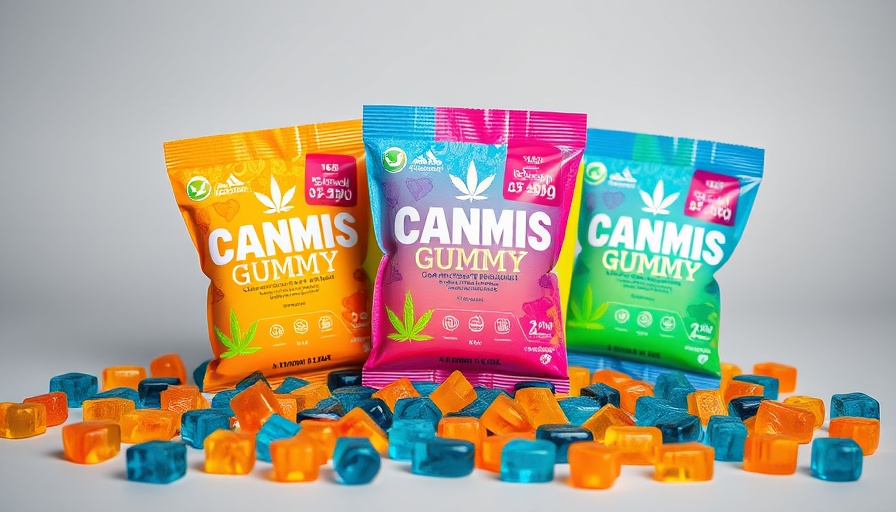
How Cannabis Edibles Are Matching Teen's Snack Preferences
In a world where cannabis edibles like gummies and chocolates are increasingly available and marketed, a new study from Washington State University (WSU) uncovers an alarming trend: these products are being designed with packaging that can mislead adolescents into viewing them as innocent snacks. Bright colors, fruit imagery, and positive descriptors such as 'vegan' or 'locally made' often make these cannabis products look appealing, engaging teens' preferences in a dangerous way.
The Appeal of Colorful Cannabis Packaging
Jessica Willoughby, an associate professor at WSU, highlights a startling revelation from the research: many teens interpreted these colorful packages as healthy and natural. Within focus groups comprised of Washington teens aged 13 to 17, discussions around real product images revealed that many participants were drawn to vibrant colors and trendy designs, which they often likened to conventional snacks. This marks a significant gap between perception and reality; unlike actual health foods, cannabis edibles contain THC—a psychoactive component that can have harmful effects on developing brains.
Insights from Teens: What Draws Them to Cannabis Edibles?
The WSU study featured virtual focus groups where teens spoke candidly about what caught their attention. Many participants indicated that they could see cannabis packaging fitting seamlessly into their social media feeds, as they believed it represented trendy, 'natural' lifestyles. Terms often associated with health, such as 'locally made' and 'vegan,' resonate strongly with younger generations, suggesting a deeper connection between personal identity and consumer choice.
A Call for Updated Regulations
In light of these findings, there's an urgent need to reconsider regulations surrounding cannabis edibles. According to the research, current laws intended to curtail marketing towards youth are not sufficient or effective. The study points out that more stringent packaging rules are necessary to mitigate the risk of accidental cannabis exposure among teens—a priority shared by health educators and policymakers alike.
Dangers of Underage Cannabis Use
What many parents and caregivers may not realize is the significant risk associated with underage cannabis use. Adolescents who use cannabis are at an increased likelihood of encountering mental health issues, cognitive impairments, and other health-related concerns. The vibrant packaging disguising cannabis edibles only serves to perpetuate misconceptions about their safety and legality, enticing naïve teens into experimenting without fully understanding the consequences.
Bridging Awareness: Educating Teens and Parents
To combat the misinformation surrounding cannabis edibles, educational initiatives are needed not just to alert teens but also to empower parents with knowledge. Conversations about the real dangers linked to cannabis use could make a significant impact. By integrating health discussions into school curriculums or community programs, we can create an environment where teens are informed about the challenges of cannabis exposure while experiencing open communication with adults.
Broader Implications for Health Education
This research emerges from a larger effort by WSU in collaboration with Public Health - Seattle & King County to reduce accidental cannabis exposure among youth. As cannabis edibles become normalized in our society, the findings underscore a vital intersection of public health, consumer safety, and youth education. A large part of the solution will rely upon engaging in meaningful dialogues and advocating for improved regulations that protect young consumers.
Conclusion: Take Action for Informed Choices
The conversation surrounding cannabis edibles has significant implications that extend beyond the individual, affecting community health at large. Engaging with local influencers or participating in lifestyle events can foster informed perspectives that aid parents, teens, and the community in navigating cannabis culture safely. Let’s take our knowledge one step further and advocate for change, ensuring that teens have access to the truths surrounding the products they encounter.
 Add Element
Add Element  Add Row
Add Row 



Write A Comment